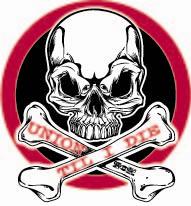Democrats and labor leaders went on the offensive against anti-union House Republicans Wednesday, accusing GOP members and business groups of threatening the country's middle class through a raft of legislation that could weaken unions.
At a forum hosted by the AFL-CIO, Sen. Tom Harkin (D-Iowa) argued that Republican efforts to strip power from the National Labor Relations Board, the federal agency that enforces labor law, were part of a broader attack on collective bargaining rights across the country. The fight, he added, was ultimately about "fairness and equity" in the economy.
"We've got to quit being on the defensive," Harkin said. "We have to take our case to the American people ... attacking [Republicans] for what they're trying to do. The American people are starting to understand how unfair the economic system is, how unfair it is for banks and the wealthy to get all the government largesse and for working people to get nothing."
Millwright Ron
www.unionmillwright.com






















